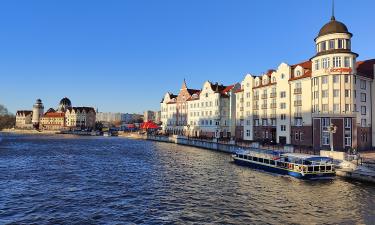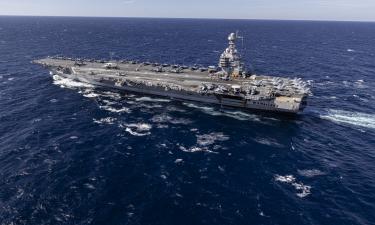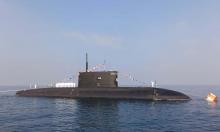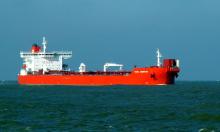Lebanon appeals for outside help after deadly car bombing on U.N. peacekeepers
The day after a deadly car bombing on U.N. peacekeepers , Lebanon's government appealed for outside help to prevent the country and the region from spiraling out of control.
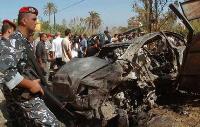
Nobody has claimed responsibility for the bombing Sunday that killed six members of the Spanish contingent, including three Colombians, and seriously wounded two others. But the majority anti-Syrian coalition in parliament blamed Damascus, despite its condemnation of the bombing.
Following a special meeting Monday, the Cabinet issued a statement saying the bombing was "an attack on Lebanon's security and stability and posed a challenge to the international community, which is standing on Lebanon's side."
Information Minister Ghazi Aridi told reporters after the meeting that Lebanon needed international support to prevent the country from imploding.
"We call on all the international community to help Lebanon because it is not permissible for Lebanon to be left alone," he said. "The collapse of this situation in Lebanon will lead to a collapse of the situation in all states in the region."
Earlier Monday, Spain's Defense Minister Jose Antonio Alonso arrived in southern Lebanon to collect the bodies of the six U.N. peacekeepers, as the U.N. commander stressed the force remained committed to keeping the peace between Lebanon and Israel.
The peacekeepers were patrolling the main road between the towns of Marjayoun and Khiam, a few kilometers north of the Israeli town of Metulla, when the bomb struck their armored personnel carrier.
Alonso said Sunday that three Colombian and two Spanish peacekeepers were among the dead.
Spain has 1,100 peacekeepers in Lebanon, part of the 13,000-member U.N. Interim Force in Lebanon from 30 countries, which first deployed in Lebanon in 1978 and was reinforced in the last year. UNIFIL, along with 15,000 Lebanese troops, patrols a zone along the Lebanese-Israeli border.
UNIFIL's presence puts teeth in U.N. cease-fire resolution 1701 that halted last summer's 34-day war. Southern Lebanon has been largely quiet after the summer war killed more than 1,200 people, most of them in Lebanon.
U.N. Secretary-General Ban Ki-moon condemned the attack Monday and called for a full investigation, U.N. spokeswoman Michele Montas said in a statement.
"The secretary-general notes the fragility of the situation in Lebanon and reiterates the importance of UNIFIL's mandate for stability in the area," she said.
The attack, the first since UNIFIL was reinforced following last year's war, came as the U.N. has become increasingly involved in highly divisive issues in Lebanon, including its tense relations with neighboring Syria.
The UNIFIL commander, Gen. Claudio Graziano of Italy, called the attack the "most serious incident" since the end of the Hezbollah-Israel war, saying "the perpetrators not only targeted UNIFIL but peace and security in the area."
Graziano added that UNIFIL "remains committed more than ever to its mission," according to a UNIFIL statement late Sunday.
Western-backed Lebanese Prime Minister Fuad Saniora told the Cabinet Monday the "terrorist attack" on U.N peacekeepers was one of a "wave of major challenges" facing Lebanon, according to the group's statement.
Media reports earlier this month said interrogations by Lebanese authorities with captured al-Qaida-inspired militants revealed plots to attack the U.N. force.
In addition, al-Qaida's No. 2, Ayman al-Zawahri, in videos broadcast in September, has denounced the reinforced UNIFIL.
But the majority anti-Syrian coalition in Lebanon's parliament has accused Damascus of being behind the bombing.
"This attack falls within the framework of the same terrorist project the Syrian regime is waging against Lebanon, its stability and independence, . . . through explosions and assassination," said a statement issued late Sunday by the group.
The coalition has regularly blamed Syria for attacks in Lebanon, beginning with the assassination of Hariri in 2005, a suicide truck bombing in Beirut that caused an international uproar, forcing Damascus to pull its army out of Lebanon after nearly three decades of control.
Since then, a series of attacks against anti-Syrian figures have been blamed on Syria, including a recent car bombing that killed a prominent anti-Syrian lawmaker. Damascus has denied involvement in such attacks.
Syria and its main Lebanon ally Hezbollah have condemned the attack. So did the United States and France.
Syrian Foreign Minister Walid al-Moallem told his Spanish counterpart in a telephone call that the attack was "a criminal act that aims at shaking security and stability in southern Lebanon," Damascus' official news agency reported Sunday.
Syria has warm relations with Spain despite its tense ties to other European countries and the United States. Moallem visited Madrid in recent weeks.
The Shiite Muslim Hezbollah called the attack a "suspicious act that harms the people of the south and of Lebanon." The militant group has had good relations with UNIFIL.
Following Monday's Cabinet meeting, Saniora left for Paris where he is scheduled to meet French President Nicolas Sarkozy and U.S. Secretary of State Condoleezza Rice to discuss Lebanon's deepening political and security crisis.
Subscribe to Pravda.Ru Telegram channel, Facebook, RSS!
